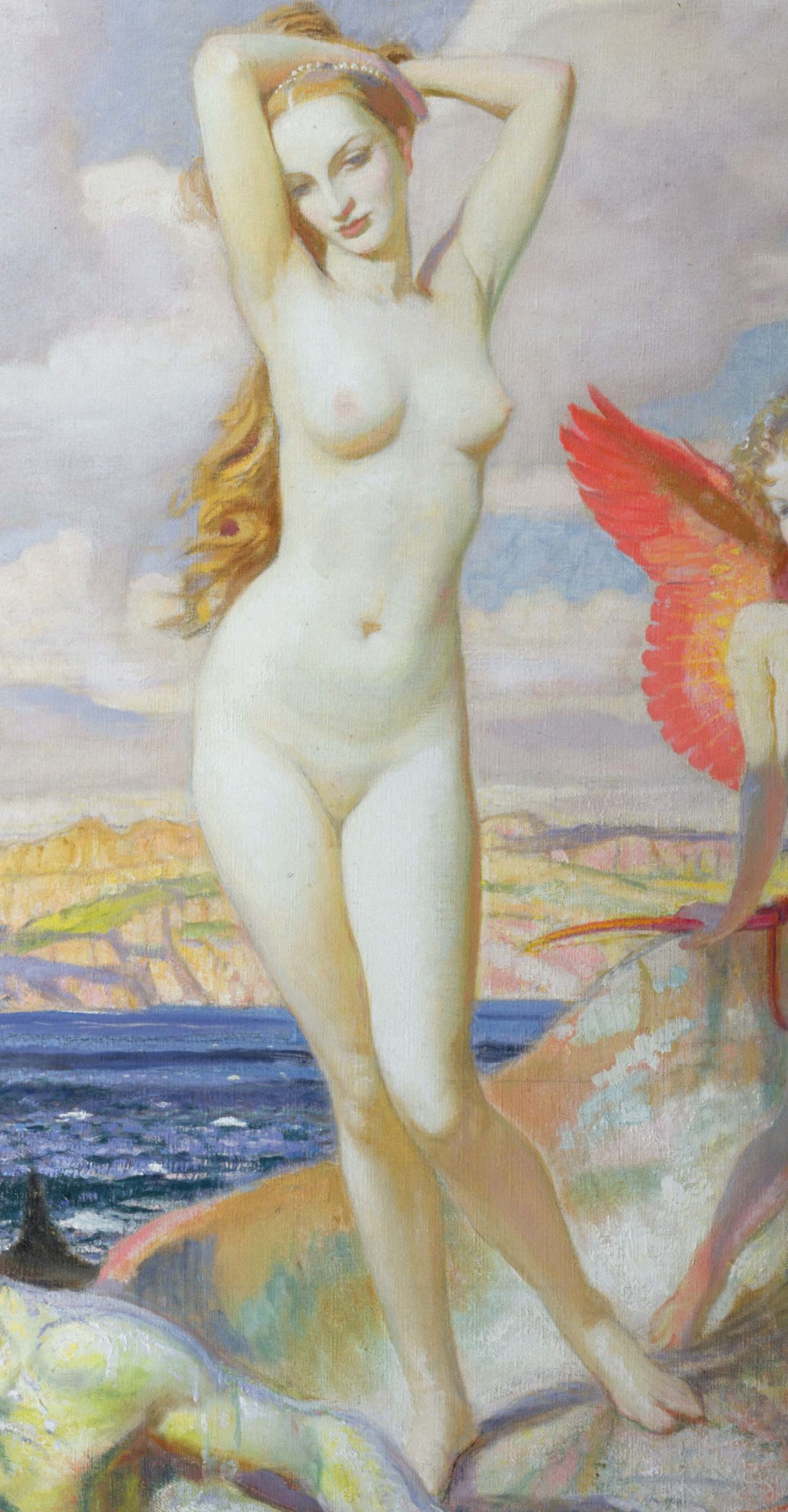
Aphrodite is the Olympian goddess of love, sexuality and beauty. In the Iliad, Homer puts forth the hypothesis that she is the progeny of Zeus and Dione, though in Hesiod’s Theogony and most other poetic sources she is introduced as the daughter of Ouranos, the sky, and the sea. In fact, the etymological route of her name definitely attests to the latter. In Greek, Aphrodite means “foam-born” or “foam-risen”, alluding to her emanation from the foam of the sea. According to Hesiod, the youngest of the Titans, Cronus, conspired with his mother, Gaea, to jettison his father, Ouranos, from the ethereal realm for the incessant abhorrence he expressed towards his own children. One night, whilst the divine couple lay in bed making love, Cronus emerged from the dark with a razor-sharp sickle and emasculated him. The god’s ichor spurted from the gaping wound and hit the earth directly below, giving birth to a horde of gruesome creatures; the Melian Nymphs, the Giants, and the dreaded Erinyes or Furies. His genitals, on the other hand, fell into the sea and autogenerated a far more desirable being, the goddess Aphrodite.
Most writers place the location of her birth just off Cyprus, although other Mediterranean isles like Kythera and Milos have also laid claim to being the birthplace of the love goddess. Foremost of her epithets are Cytherea and Cypris. Given that she is sovereign of the natural world, myrtles, doves, swans, sparrows and horses are all sacred to her. In fact, she is frequently depicted being hauled across the sky in a dove-drawn chariot. Aphrodite is notorious for the plethora of love affairs she carries out with gods like the war-loving Ares, as well as handsome men like Anchises and Adonis. She is married to the god Hephaestus who happens to be lame and frequently cheats on him. Aphrodite is undoubtedly a passionate and empathetic lover, yet all too often one finds her engaged in treachery, malice and vindictiveness.
In the Judgement of Paris, she bribes the Trojan prince into giving her the golden apple by offering him the most beautiful woman in the world, Helen of Sparta, as his wife. Her intimate involvement in the abduction of a princess who was already married to the King of Sparta, Menelaus, as well as her ample use of magical incantation to achieve it brands her as the foremost villain in Homer’s Iliad. In any case her invested interests are ample and thus she makes a plethora of appearances during the length of the war. In one particular instance she intervenes to defend her son Aeneas from an arrow thrown by the Greek hero Diomedes and wears the consequences herself. Suffering a minor injury, she immediately absconds the battleground for the safety of Olympus. Elsewhere, she senses the precarious position of her mortal celebrant Paris and comes to his immediate aid, enveloping his body in ethereal mist before teleporting him back to his living quarters. Then, in an imperative attempt to reunite the lovers, she materializes before Helen in the guise of an old hag to instruct her of his whereabouts.
She is usually equated with the Latin Venus, the Egyptian Hathor and the Babylonian Ishtar. The Homeric Hymns spin such an enchanting impression of her:
Golden crowned, beautiful
awesome Aphrodite
is who I shall sing,
she who possesses the heights
of all
sea-wet Cyprus
where Zephyrus swept her
with his moist breath
over the waves
of the roaring sea
in soft foam.
In their circles of gold
the Hours joyously
received her
and wrapped
the ambrosial garments around her.
On her immortal head
they laid a crown of gold
that was wonderfully made
and in
the pierced lobes of her ears
they hung
flowers of copper
from the mountains
and precious gold.
Round her delicate throat
and her silvery breasts
they fastened
necklaces of gold
which they,
the gold-filleted Hours,
wear themselves
when they go
to the lovely dances of the gods
in their father’s house.









